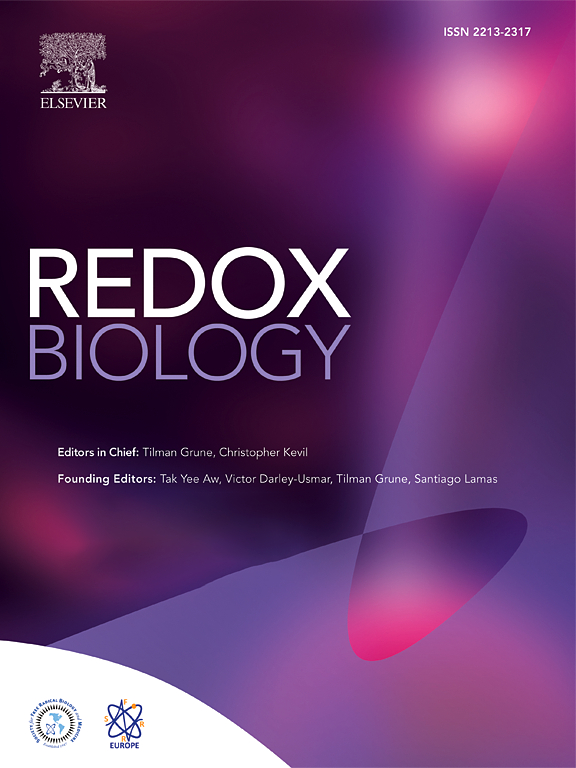Interplay between epigenetics, senescence and cellular redox metabolism in cancer and its therapeutic implications
IF 10.7
1区 生物学
Q1 BIOCHEMISTRY & MOLECULAR BIOLOGY
引用次数: 0
Abstract
There is accumulating evidence indicating a close crosstalk between key molecular events regulating cell growth and proliferation, which could profoundly impact carcinogenesis and its progression. Here we focus on reviewing observations highlighting the interplay between epigenetic modifications, irreversible cell cycle arrest or senescence, and cellular redox metabolism. Epigenetic alterations, such as DNA methylation and histone modifications, dynamically influence tumour transcriptome, thereby impacting tumour phenotype, survival, growth and spread. Interestingly, the acquisition of senescent phenotype can be triggered by epigenetic changes, acting as a double-edged sword via its ability to suppress tumorigenesis or by facilitating an inflammatory milieu conducive for cancer progression. Concurrently, an aberrant redox metabolism, which is a function of the balance between reactive oxygen species (ROS) generation and intracellular anti-oxidant defences, influences signalling cascades and genomic stability in cancer cells by serving as a critical link between epigenetics and senescence. Recognizing this intricate interconnection offers a nuanced perspective for therapeutic intervention by simultaneously targeting specific epigenetic modifications, modulating senescence dynamics, and restoring redox homeostasis.
癌症中表观遗传学、衰老和细胞氧化还原代谢之间的相互作用及其治疗意义
越来越多的证据表明,调控细胞生长和增殖的关键分子事件之间存在密切的相互影响,这可能会对癌变及其进展产生深远影响。在此,我们将重点回顾有关表观遗传修饰、不可逆细胞周期停滞或衰老以及细胞氧化还原代谢之间相互作用的观察结果。表观遗传学改变,如DNA甲基化和组蛋白修饰,会动态影响肿瘤转录组,从而影响肿瘤的表型、存活、生长和扩散。有趣的是,衰老表型的获得可由表观遗传学变化引发,它是一把双刃剑,既能抑制肿瘤发生,又能促进有利于癌症进展的炎症环境。同时,氧化还原代谢异常是活性氧(ROS)生成和细胞内抗氧化防御之间平衡的一个函数,它通过充当表观遗传学和衰老之间的关键环节,影响癌细胞的信号级联和基因组稳定性。认识到这种错综复杂的相互联系,就能同时针对特定的表观遗传修饰、衰老动态调控和恢复氧化还原平衡,为治疗干预提供一个细致入微的视角。
本文章由计算机程序翻译,如有差异,请以英文原文为准。
求助全文
约1分钟内获得全文
求助全文
来源期刊

Redox Biology
BIOCHEMISTRY & MOLECULAR BIOLOGY-
CiteScore
19.90
自引率
3.50%
发文量
318
审稿时长
25 days
期刊介绍:
Redox Biology is the official journal of the Society for Redox Biology and Medicine and the Society for Free Radical Research-Europe. It is also affiliated with the International Society for Free Radical Research (SFRRI). This journal serves as a platform for publishing pioneering research, innovative methods, and comprehensive review articles in the field of redox biology, encompassing both health and disease.
Redox Biology welcomes various forms of contributions, including research articles (short or full communications), methods, mini-reviews, and commentaries. Through its diverse range of published content, Redox Biology aims to foster advancements and insights in the understanding of redox biology and its implications.
 求助内容:
求助内容: 应助结果提醒方式:
应助结果提醒方式:


